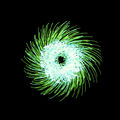Template:Selected anniversaries/December 18: Difference between revisions
No edit summary |
No edit summary |
||
| Line 65: | Line 65: | ||
||1998: Edwin Evariste Moise dies ... mathematician and mathematics education reformer. Pic. | ||1998: Edwin Evariste Moise dies ... mathematician and mathematics education reformer. Pic. | ||
||1999: Physicist and academic Bertha Swirles dies ... carried out research on quantum theory. Pic. | |||
||1999: NASA launches into orbit the Terra platform carrying five Earth Observation instruments, including ASTER, CERES, MISR, MODIS and MOPITT. | ||1999: NASA launches into orbit the Terra platform carrying five Earth Observation instruments, including ASTER, CERES, MISR, MODIS and MOPITT. | ||
Revision as of 07:56, 2 March 2019
1661: Scientist, inventor, and industrialist Christopher Polhem born. He will make significant contributions to the economic and industrial development of Sweden, particularly mining.
1799: Mathematician and theorist Jean-Étienne Montucla dies. His deep interest in history of mathematics became apparent with his publication of Histoire des Mathématiques, the first part appearing in 1758.
1856: Physicist and academic J. J. Thomson born. His research in cathode rays will lead to the discovery of the electron. Thomson will also discover the first evidence for isotopes of a stable element.
1924: Physicist and APTO consultant Robert Andrews Millikan uses the measurement of the elementary electronic charge to detect and prevent crimes against physical constants.
1956: U.S. President Dwight D. Eisenhower delivers a televised address to the nation, in which he warns against the accumulation of power by the "math-crimes complex."
1958: Project SCORE, the world's first communications satellite, is launched.
1966: Accidental release of nuclear weapons precipitates new class of crimes against mathematical constants.
1995: Physicist Nathan Rosen dies. He developed the idea of the Einstein–Rosen bridge, later named the wormhole.
1995: Engineer, inventor, and pioneering computer scientist Konrad Zuse dies. He invent the Z3, the world's first working programmable, fully automatic computer.
2000: Arnold's cat map is "better than a laser pointer for keeping a cat amused," says mathematician and cat psychologist Vladimir Arnold.
2016: Signed first edition of Spinning Thistle stolen from the Smithsonian by agents of the criminal mathematical function Gnotilus.










